2022-23 Provost Faculty Fellows
Five Fellows will embark on specific projects throughout the 2022-2023 academic year, with mentorship provided by senior administrative officials.
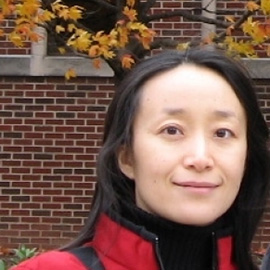
Huiling Ding
Professor, Department of English; Director of Master of Science in Technical Communication Program
Mentors: Bailian Li, Vice Provost for Global Engagement and Peter Harries, Dean of the Graduate School
Project: Analytics-Driven Academic Pathways To High-Impact Education (ADAPT): Preparing Students (and Faculty) for Future of Work with Real-time Labor Market Analytics
This project aims to help cultivate real-time labor market information (RT LMI) literacy among academic administrators, program directors and faculty to help them make data-informed decisions at programmatic levels with high-quality labor market analytics. To assist with curricular updates as well as program development, marketing and assessment, I will develop educational modules, implement pilot tests and propose recommendations to empower administrators, faculty and students with the latest and comprehensive analytics about labor market trends, program outcomes, and competencies and skills.
Deliverables include a landscape survey to examine what peer institutions have accomplished through the implementation of RT LMI tools. Then a pilot study will be developed and a recruitment effort undertaken to identify colleges and academic programs interested in taking part. Workshops and training materials will be developed to help program directors and interested faculty apply RT LMI analytics to enhance student success, with particular attention paid to marketable skills and core competencies, as well as global experiences and perspectives. The ultimate goal of ADAPT is to help deliver high-impact education by supporting analytics-informed academic and programmatic decisions.
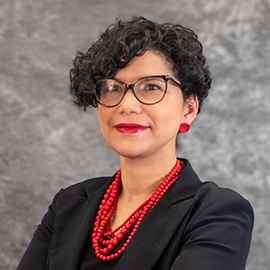
Maria Mayorga
Professor of Personalized Medicine, Edward P. Fitts Department of Industrial and Systems Engineering
Mentors: Peter Harries, Dean of the Graduate School and Sheri Schwab, Vice Provost for Institutional Equity and Diversity
Project: Emergent Strategies for the Recruitment and Retention of Underrepresented Minority Scholars
Emergent strategies are a way to facilitate social change and disrupt systems through complex organizing based on principles from the natural world, such as scalability through reproducibility, interdependence, and strength through community and relationship building. This project will propose a framework for design and evaluation of graduate recruitment practices based on these principles, as well as activities that put this framework into action. We plan to pilot one activity in the spring of 2023 that recruits underrepresented graduate students to several engineering departments. Based on assessment of this activity and feedback from end-users, a final framework and set of proposed future activities will be recommended.
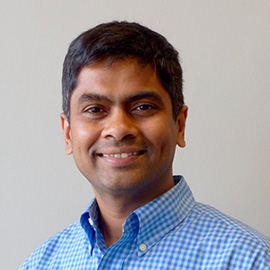
Balaji (Bala) Rao
Professor, Department of Chemical and Biomolecular Engineering; Director of Academic Programs, Biomanufacturing Training and Education Center
Mentors: Mark Bernhard, Vice Provost for Continuing Education and Don Hunt, Senior Vice Provost for Enrollment Management and Services
Project: Re-imagining Academic Credit
Developing innovative university programs and enabling access to continuing education for a diverse community outside the university requires rethinking the traditional concept of academic credit. This project seeks to establish and implement a framework for “milliCredit” courses — short courses that accrue academic credit less than one credit hour, and are compatible with continuing education offerings. Such a framework will enable academic departments to develop flexible and innovative programs and seamlessly enable continuing education programs for lifelong learning opportunities.
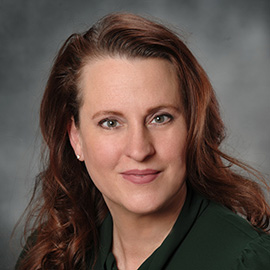
Michelle Bartlett
Associate Teaching Professor, Department of Educational Leadership, Policy, and Human Development; Faculty Scholar, Belk Center for Community College Leadership and Research
Mentor: Katharine Stewart, Senior Vice Provost for Faculty and Academic Affairs
Project: Creating Stronger and Clearer Pathways for Professional Track Faculty
The plan of this project is to renew the departments’ focus on creating strong promotion standards for their full-time professional track faculty. The professional faculty regulation at NC State was revised in 2020 to require that departments establish these standards in any track in which they have appointed full-time faculty, and then the pandemic hit. As we emerge, it is vital to help departments re-engage in this meaningful work.
Through meeting regularly with Dr. Katharine Stewart, collecting data at NC State and other institutions, and meetings with departments, it is the hope that this project will help departments to move forward with this work, revising their RPT rules or creating new rules that specifically address the promotion standards for relevant professional tracks. During this project, I hope to create examples of what is working well for other departments as a way of speeding the pace of change on this important outcome and establishing some best practices in the support of professional faculty career success and well-being.
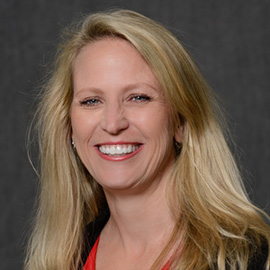
Beth Wright Fath
Teaching Professor; Head, Department of Health and Exercise Studies
Mentors: Donna Petherbridge, Vice Provost for DELTA and Greg Raschke, Senior Vice Provost and Director of Libraries
Project: Decolonizing and Degendering Courses and Curriculum
The overall framework of academic program requirements and the course content within reveals our values to our students and the state. I have and continue to work on degendering and colonizing courses in my own discipline. However, I am curious about a broader lens. My goal with this project is to find some inter- and trans-disciplinary tools for faculty, as well as approaches and resources that support individual faculty and departments in conveying their values as we reenvision our R1, land-grant university for all of the constituents of North Carolina.